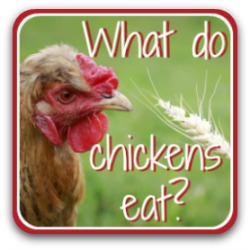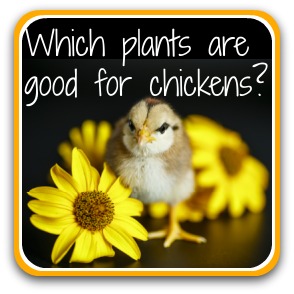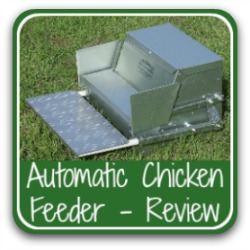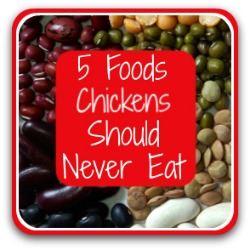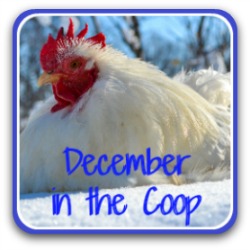- Home
- Plants for Chickens
- Benefits of garlic
Garlic benefits for chickens: a complete guide.
Garlic isn’t just good for humans – it’s one of the best natural health boosters you can give your flock too.
But with so much conflicting advice online (is it poisonous? will the eggs taste funny? does garlic kill worms?), it’s hard to know what's fact and what's folklore.
In this article, I'll share what the research(1) really says about garlic and chickens, how to use it safely, and why a little goes a long way.
Whether you’re curious about feeding it raw, powdered, or even growing your own, you’ll find practical, down-to-earth answers here.
🪶 Featherlight Takeaways.
Quick insights from this article: especially helpful if you want natural ways to support flock health but you've heard mixed reports about feeding garlic to chickens.
- Yes, chickens can eat garlic – in moderation. It’s packed with health benefits.
- Garlic boosts immunity, egg quality and growth: all backed by studies, not just folklore.
- Fresh, raw garlic works best but powder has proven benefits too.
- Moderation matters: too much can upset gut balance.
- Bonus: garlic is cheap, easy to grow, and stores well, making it a natural fit for backyard flocks.
This is a very long article, covering all aspects of the health benefits of garlic for chickens. If you're looking for specific information, these links will help.
Can chickens eat garlic?
Yes, absolutely. Chicken keepers have used raw garlic for generations to ward off a long list of poultry ailments from respiratory infections, to general immune support.
 Every rural Italian family grows enough garlic to last one year.
Every rural Italian family grows enough garlic to last one year.You might see warnings that, because garlic is part of the onion family, it can be poisonous to chickens.
That's a myth.
The compound that makes onions unsafe (thiosulphate) is present in garlic only in tiny, harmless amounts.
Garlic is one of the most researched supplements for chickens, and dozens of peer-reviewed studies confirm that garlic is not only safe, but actively beneficial for poultry health.
It supports growth, strengthens the immune system, and may even improve the nutritional value of eggs.
The only caveat? Moderation.
As with any supplement, too much garlic can upset the balance of gut bacteria.
Start small and give your flock time to get used to the taste. Don't just toss a whole bulb into the drinker and expect them to lap it up – chickens have to get used to any change slowly!
How much garlic should I give my chickens?
Remember: the golden rule is moderation. A little goes a long way, and too much can upset the balance of "good" bacteria in the digestive system.
This is what research recommends:
- In water: crush one fresh garlic clove per litre (about 4 per US gallon).
- In oil: use half a fresh clove infused in 1 litre, (one to 4 US cups). Drizzle over feed.
- Over food: one clove, crushed or finely chopped, mixed into feed no more than twice a week.
- Always use fresh, raw garlic. Cooking reduces its benefits.
It may take some time for your flock to get used to the taste. Start small and build up gradually over time.
Can baby chickens eat garlic?
Yes, but in very small amounts. Starting chicks early helps build their immune systems and makes them more likely to accept garlic as adults.
For chicks in the brooder, crush no more than 1 clove into one litre (about 1 US quart) of water, offered no more than twice a week. Always give plain water in between so they don't dehydrate if they dislike the taste.
Keep an eye on them: if the chicks aren't drinking, reduce the amount or remove the garlic water altogether and reintroduce it more slowly.
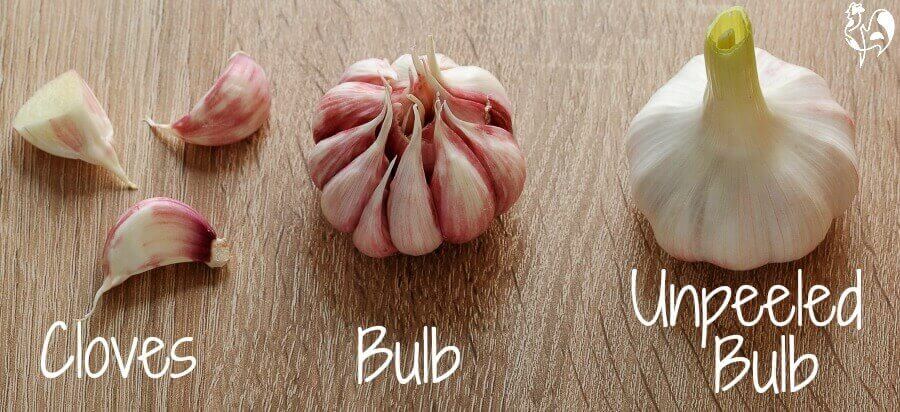 Left to right: fresh garlic cloves, a peeled bulb and an unpeeled bulb or 'head'.
Left to right: fresh garlic cloves, a peeled bulb and an unpeeled bulb or 'head'.Health benefits of garlic for chickens.
Garlic has been studied more than almost any other natural supplement for poultry, and its effects are wide-ranging. Here are the most important, evidence-based benefits for your flock:
- Boosts the immune system: garlic strengthens a chicken’s natural defences, helping them recover more quickly if they’re looking a little "under the weather".
- Fights harmful bacteria: proven to be active against bacteria such as Salmonella, E. coli, and Cholera(2).
- A natural antibiotic alternative: because it targets "bad" rather than "good" bacteria, garlic can help reduce reliance on antibiotics in poultry feed and is already used as a substitute in countries where antibiotics in poultry feed are illegal(2).
- Supports recovery after illness: garlic helps re-balance the gut and stimulates the appetite, making it especially helpful for weak or recovering birds.
- Improves egg production and quality: studies show hens given garlic produce larger, better quality eggs with lower cholesterol.
- Deters red mite: the compound allicin in garlic seems to make chickens' blood less appealing to mites, offering a natural deterrent.
- Encourages growth in chicks and underweight hens: stimulates appetite and aids digestion, supporting steady growth.
🐥 A note from my flock: when I raise chicks, I start them on very small amounts of crushed garlic mixed into their feed. It helps them get used to the taste early, so by the time they’re older they take garlic water without fuss.
I’ve found it gives them a healthy start and encourages steady growth. They even seem to enjoy the flavour!
 Garlic is great for helping baby chicks develop a healthy immune system.
Garlic is great for helping baby chicks develop a healthy immune system.Does garlic kill worms in chickens?
No, at least not directly.
You’ll often see claims that garlic kills intestinal worms, but the research does not support that.
One study on mice showed a short-term reduction in worms during the first week of feeding garlic, but the effect did not last after that week.
So if you actually see worms in your chickens' droppings, garlic is not enough: you need a proven wormer, such as Verm-X. (Affiliate link).
That said, garlic is still useful as part of prevention.
Just as its allicin compounds deter red mites, garlic may make the gut a less attractive environment for worms.
So adding it regularly to the diet can be a helpful background support, but it is not a cure once worms are established.
Take immediate action if you see worms. Add garlic to the flock's diet once you've got rid of them.
Does garlic help with mites and mosquitoes?
It can, if prepared properly not to be added to food or drink, but used externally as a spray.

A home-made garlic spray is an organic, non-toxic way to help deter red mite and scaly leg mite.
Some studies, including work cited by Gail Damerow(1), suggest garlic spray has measurable effects against Northern Fowl Mite.
Scientific proof is still limited for mosquitoes, but if they're a problem, it may be worth trying in summer months.
How to make garlic spray.
- Peel one whole bulb (head) of garlic and crush the cloves with a press, or blitz in a food processor.
- Strain the pulp through muslin or a fine mesh to collect the juice.
- Mix about 50 ml (¼ cup) garlic juice with 500 ml (2¼ cups) water.
- Use fresh – it loses strength within 48 hours.
How to use garlic spray.
- Scaly leg mite: spray onto legs and gently rub in.
- Northern Fowl Mite: spray the vent once a week for 3 weeks.
- Red mite: spray into cracks and nooks where mites hide.
- Mosquitoes: spray around the coop at dusk, when hens are roosting.
This does not replace other mite treatments if you already have a heavy infestation, but it can be a helpful natural deterrent alongside good coop hygiene.
What's the best way to feed garlic to the flock?
The key to getting the most from garlic is freshness and preparation. Crushing a fresh, uncooked clove is the absolute best way. It releases allicin – the anti-oxidant behind garlic’s antibacterial and immune-boosting powers.
But the strongest benefits of crushed garlic fade after about 48 hours, so it's important to refresh water or feed within two days.
Chickens won't peck at a whole clove. The trick is to add tiny pieces to their food or drink.
Here are the easiest ways to use garlic with your flock:
- In water: crush one fresh clove per litre (about 4 per gallon) and add it to their drinking water once per week. Remove after 48 hours and offer plain water in between garlic days.
- I use a garlic presser like this one – it makes the job much quicker. (Affiliate link).
- Over food: Crush or finely chop one clove and sprinkle over feed, no more than twice a week.
- As a treat mix-in: add small amounts to healthy recipes like my Poultry Protein Platter.
- Garlic powder: organic, non-GMO powder can be useful when fresh isn't available. Research(5) shows that adding up to 1% garlic powder to feed can improve laying rate and egg quality. I use about one teaspoon to a kilo of food a couple of times each week.
What about garlic oil?
Some keepers drizzle garlic-infused oil over feed, but it comes with a risk: homemade garlic-in-oil mixtures can encourage botulism if not stored correctly.
Unless you’re confident in safe preparation (using short-term refrigeration or freezing), stick with fresh garlic or garlic powder.
Does garlic make chicken eggs taste?
This is one of the most common worries I hear: "if I feed my hens garlic, will I end up with garlic-flavoured omelettes?"
The short answer is no, unless you’re feeding huge amounts.
Studies(e.g. 3, 4, 5) show you’d need to add at least 3% garlic to a hen’s daily diet before any flavour changes become noticeable. That’s far more than most of us would ever use – about 30 grammes per kilo (1oz per 2 lbs).
In fact, a long-standing study at Clemson University found the opposite: taste testers actually preferred the eggs from garlic-fed hens. They described the flavour as milder and fresher, probably because garlic naturally reduces sulphur compounds in the egg.
And the benefits don’t stop at taste. Research has shown that adding around 1% garlic to hens’ diets can:
- increase egg production,
- boost egg size and quality, and
- lower cholesterol in the yolks.
🐥 A note from my flock: I’ve fed garlic regularly over the years and I’ve never had an egg come out tasting of garlic. What I have noticed is that shells are stronger and the eggs seem a little bigger.
It’s reassuring to know the science backs up what I’ve seen in my own nest boxes.
 Want larger, nutritionally superior eggs? Use garlic!
Want larger, nutritionally superior eggs? Use garlic!A surprising side effect in the chicken coop.
One of the more unusual benefits of garlic is what it can do to the smell of your coop. A study from Clemson University found that when garlic was added to chickens' diets, the ammonia odour of droppings was reduced.
Instead of the usual pungent ammonia smell, the researchers joked that the poultry house "smelled more like a pizzeria than manure".
It’s not the main reason to feed garlic to your flock, but it’s a nice little bonus for backyard chicken keepers (and our neighbours!).
Frequently Asked Questions about garlic benefits for chickens.
Your top questions – answered!
Can I use garlic instead of a wormer?
Can I use garlic instead of a wormer?
No. Garlic may help deter worms, but it won’t kill worms already in your chickens. If you see worms, you need a proven wormer first, following up with garlic once the worst is over.
Will feeding garlic make my eggs taste garlicky?
Will feeding garlic make my eggs taste garlicky?
Only if you feed truly huge amounts – much more than anyone ever would. In fact, studies show garlic can make eggs taste milder and even reduce their cholesterol levels.
Is garlic powder as good as fresh garlic?
Is garlic powder as good as fresh garlic?
Fresh is best, but studies show a good quality garlic powder can improve egg production and quality. Use a pure, non-GMO powder, not the fried or flavoured kind.
Can garlic be harmful to chickens?
Can garlic be harmful to chickens?
Not in the small amounts we’re talking about here.
This often expressed worry comes from onions, which are from the same generic family, and can be toxic. Garlic has only trace amounts of the problematic compound, as studies have shown, is both safe and healthy.
How often should I feed garlic to my chickens?
How often should I feed garlic to my chickens?
No more than a couple of times a week. Think one crushed clove per litre of water, or sprinkle over food in small chopped or crushed amounts. Little and often works best.
How to grow your own garlic in 6 easy steps.
Given that garlic has such amazing benefits for chickens, it makes sense to give them the best you can find.
Growing your own ensures that it's fresh, not genetically modified and free from chemical treatments.
And it's very easy to grow the most delicious bulbs, even if you have limited space.
Follow this link to discover how easy it really is to grow organic, untreated, delicious, healthy garlic for your flock - and for your family!
- Home
- Plants for Chickens
- Benefits of garlic
If you found this article helpful, you may like these.
Sources and further reading.
A lot of "facts" you'll find on the internet are often people's individual views, often based on inaccurate information repeated from poor quality sources.
The information I provide in this article and others is based not just on my own experience, but on evidenced facts from scientific, peer-reviewed research and from highly respected and experienced poultry keepers such as Gail Dammerow.
Some of the sources I have used are these - click the link to read the full document:
1. Damerow, Gail: The Chicken Health Handbook. Pub. Storey, 2015.
2. Rehman, Z., and Munir, M: Effect of garlic on the health and performance of broilers. Pub. Veterinaria, 2015.
3. Olobatoke, R., and Mulugeta, S.: Effect of dietary garlic powder on layer performance, fecal bacterial load and egg quality. Pub. Poultry Science, 2011.
4. Khan, S. et al: Effects of dietary garlic on performance and serum and egg yolk cholesterol in laying hens. Pub. Asian Journal of Poultry Science, 2007.
5. Abdulaziz, A: Effects of different dietary levels of garlic (Allium Sativum) powder on productive performance and egg quality of laying hens. Pub. International Journal of Poultry Science, 2016.
6. Bruso, J: Which is healthier: raw or cooked garlic? Pub. Livestrong, 2017.



